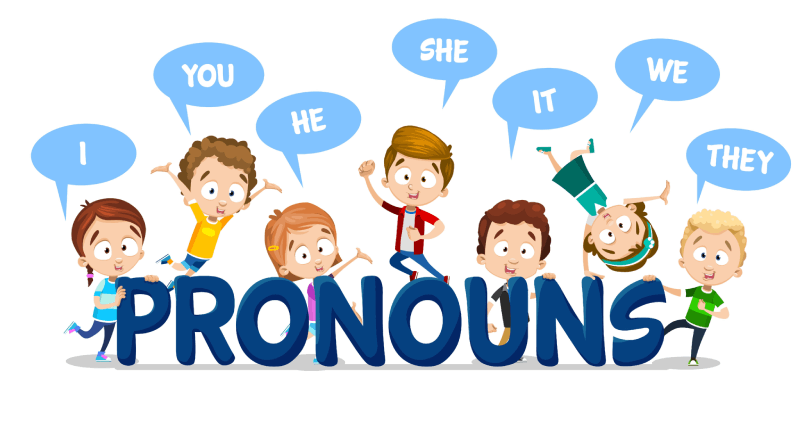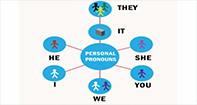Change Avatar
Personal Pronouns
Personal pronouns are a special kind of pronoun that refer specifically to people, places, or things.
What Are Personal Pronouns?
Personal pronouns are unique in that they indicate more than just the noun, but more specifically the person, gender, number, and case of the aforementioned noun. It’s what makes them so phenomenal when writing, but also a bit tricky to understand because there are some intricacies to them.

What Are First-, Second-, and Third-Person Pronouns?
This is where it begins to get a bit confusing, but stay close and you’ll have it figured out in no time.
Persons
Personal pronouns are indicated as being in one of three “persons”: first, second, and third.
First-person pronouns refer to the speaker, while second-person pronouns indicate the person to whom the speaker is talking. Finally, the third-person pronoun refers to the person about whom they are speaking. There are both singular and plural forms of each of these.
It does get a bit more complicated that just the person, however. Take a look…
Subject & Object Pronouns
Depending on how the personal pronoun functions in a sentence, they get categorized as either subject (subjective) or object (objective) pronouns. They are given special case names - subject pronouns are in the nominative case (as in they name someone or something) while object pronouns are in the objective case (indicating an indirect or direct object).
Take a look at the chart below to gain a greater understanding of these divisions.
| Person | Nominative (Subject) | Objective (Object) |
|---|---|---|
| 1st-Person Singular | I | me |
| 2nd-Person Singular | you | you |
| 3rd-Person Singular | he / she / it | him / her / it |
| 1st-Person Plural | we | us |
| 2nd-Person Plural | you | you |
| 3rd-Person Plural | they | them |
QUICK TIP!
When referring to both male and female, it is grammatically correct to use he or she or him or her. However, over time this rule has evolved to allow they to be used in both singular and plural form.
For example, it is now right to say either of the following:
If a student needs to leave the classroom, he or she can raise his or her hand to ask.
If a student needs to leave the classroom, they can raise their hand to ask.


